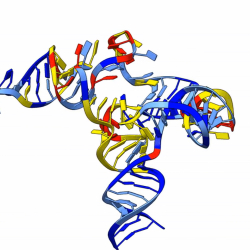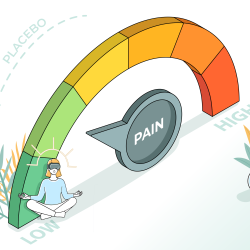Training the Brain
Decoding Disease, Targeting Threats
Though modern science has eradicated countless threats to human health, many other diseases and degenerative conditions continue to take a devastating toll. How can we eliminate these threats to health and well-being?
Researchers in the University of Maryland’s College of Computer, Mathematical, and Natural Sciences (CMNS) fight relentlessly against diseases and conditions that claim countless lives and undermine ability, function and perception. These scientists are committed to finding answers by mapping complex neurological circuitry to better understand how the brain works and what happens when something goes wrong, tapping into the power of disease-fighting T cells to stop cancer in its tracks, and unraveling complex mechanisms to better understand and treat neurological impairments caused by aging and disease.
Grand challenges demand bold ideas and real-world solutions. In CMNS, we lead Fearlessly Forward.

People rely on their ability to improve their senses with practice—a concept called perceptual learning—for essential skills like speech recognition, language acquisition and musicality. But over time, people can slowly lose their ability to interpret and respond to what they experience through their senses. Often, this decline in sensory ability is influenced by aging, neurocognitive disorders like dementia, and sensory impairments like hearing loss. When people lose their ability to hear, they often struggle with developing or retaining the skills needed to stay connected to the world as they know it.
To find ways to help people maintain or improve their perceptual skills even as they age or encounter disease, Biology Assistant Professor Melissa Caras is trying to uncover the basic mechanistic principles of perceptual learning in freely moving animals.
“Even the weakest sensory cues can help a person get crucial information about the world around them. A dim light or a soft whisper—those all carry important messages to the person who senses these things,” Caras said. “I’m interested in understanding neuroplasticity in sensory systems, which means changes in the brain that give rise to changes in sensory perception. These changes happen in both animal and human brains, impacting how we develop certain skills that are important in everyday life.”
Along with her team, Caras works to uncover the mechanisms responsible for how animals can refine or improve their sensory abilities and learn to hear subtle differences between sounds that they couldn’t hear before. In her research, Caras uses tools like electrophysiology (measuring the electrical activity of neurons) and optogenetics (using light to control the activity of neurons) to monitor and manipulate neural activity in the brains of animal models. By pinpointing certain brain pathways activated by perceptual learning, the team can further investigate whether these pathways can be stimulated to improve or rejuvenate the process.
“Our perception of the world isn’t stable; in fact, our sense of reality is dynamic. Perceptions are malleable and based on things like our attention, expectations of upcoming events and training,” Caras explained. “We get better at sensing stimuli with practice and transform from ‘perceptual novices’ to ‘perceptual experts’ during that process. For example, native Japanese speakers may initially struggle to hear the difference between the spoken letters of ‘L’ and ‘R’ in English, but with practice, they can learn to distinguish between the sounds.”
According to Caras, her research could be the key to understanding how people can ‘train’ their brains to become skilled in perceptually demanding tasks like learning a second language.
In January 2023, she received funding from the National Institutes of Health to continue her research into the relationship between sensory perception and neuroplasticity. Caras believes that understanding how exactly expertise arises in the brain will also eventually allow researchers to facilitate expertise—or speed up the process—in individuals with age- or disease-related sensory impairments, greatly improving their quality of life.
Written by Georgia Jiang
This article was published in the Fall 2023 issue of Odyssey magazine. To read other stories from that issue, please visit go.umd.edu/odyssey.
Also from this issue:







